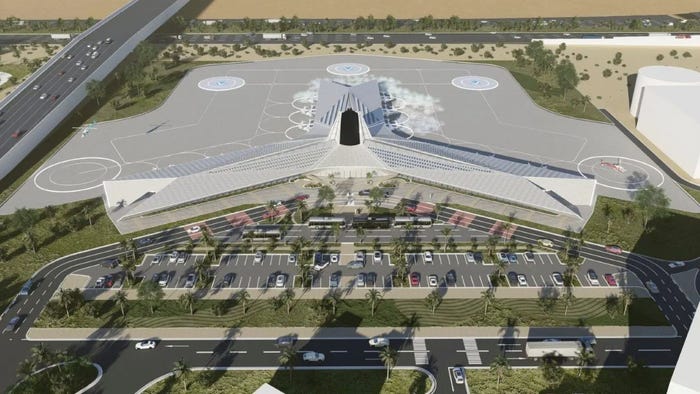Starship Food Delivery Robots Rolled Out on Two More College CampusesStarship Food Delivery Robots Rolled Out on Two More College Campuses
The zero-emission robots will be available to staff and students, delivering on-campus food and drink

Delivery robots are seeing a rise in popularity, seen on our streets for home delivery, curbside snacks and even on the golf course for mid-game deliveries. The autonomous service is also being increasingly rolled out on university campuses, trundling along to deliver students and teachers food and drinks at all times of the day and easing the pressure of delivery drivers and local servers.
Ball State University in Muncie, Indiana and Missouri University of Science and Technology are the latest to join this growing trend, with the rollout of 24 and 16 delivery robots respectively from Starship Technologies. The roaming bots will provide food, drink and snack deliveries from a range of on-campus restaurants and cafes, with the service accessible via a mobile app.
“The Starship robots provide our students, faculty and staff, and campus visitors a safe and effective way to have food delivered to their location,” said Karen Adkins, senior director of auxiliary services for dining at Ball State. “This will make for a more enjoyable campus experience while saving time for those who use the service.”
The zero-emission robots are fitted with an array of sensors to enable autonomous navigation, including 12 cameras, radars and ultrasonic sensors. Each is large enough to accommodate delivery of the equivalent of three shopping bags of produce.
Starship already successfully deployed its delivery robots at more than 20 university locations, including Missouri State University, Arizona State University, the University of Kentucky, UCLA and the University of Tennessee, to name a few. Since deployment, all campuses have seen high enough demand to warrant increased numbers of robots, dining options and hours of operation.
“We know these students appreciate tech so we think it will be a great experience for them to interact with our robots every day,” said Chris Neider, director of business development at Starship Technologies. “Plus, we can’t wait to hire some of them for valuable real-world training.”
About the Author
You May Also Like






